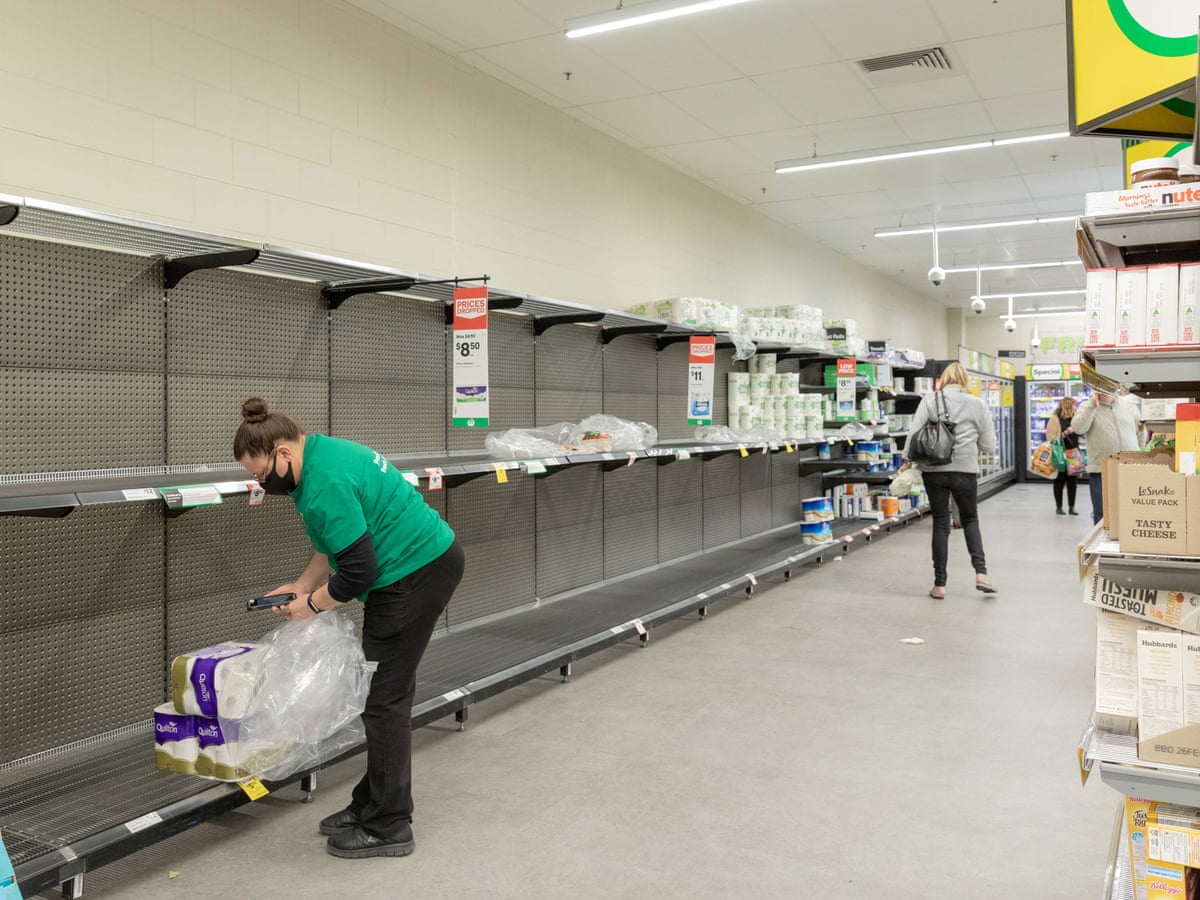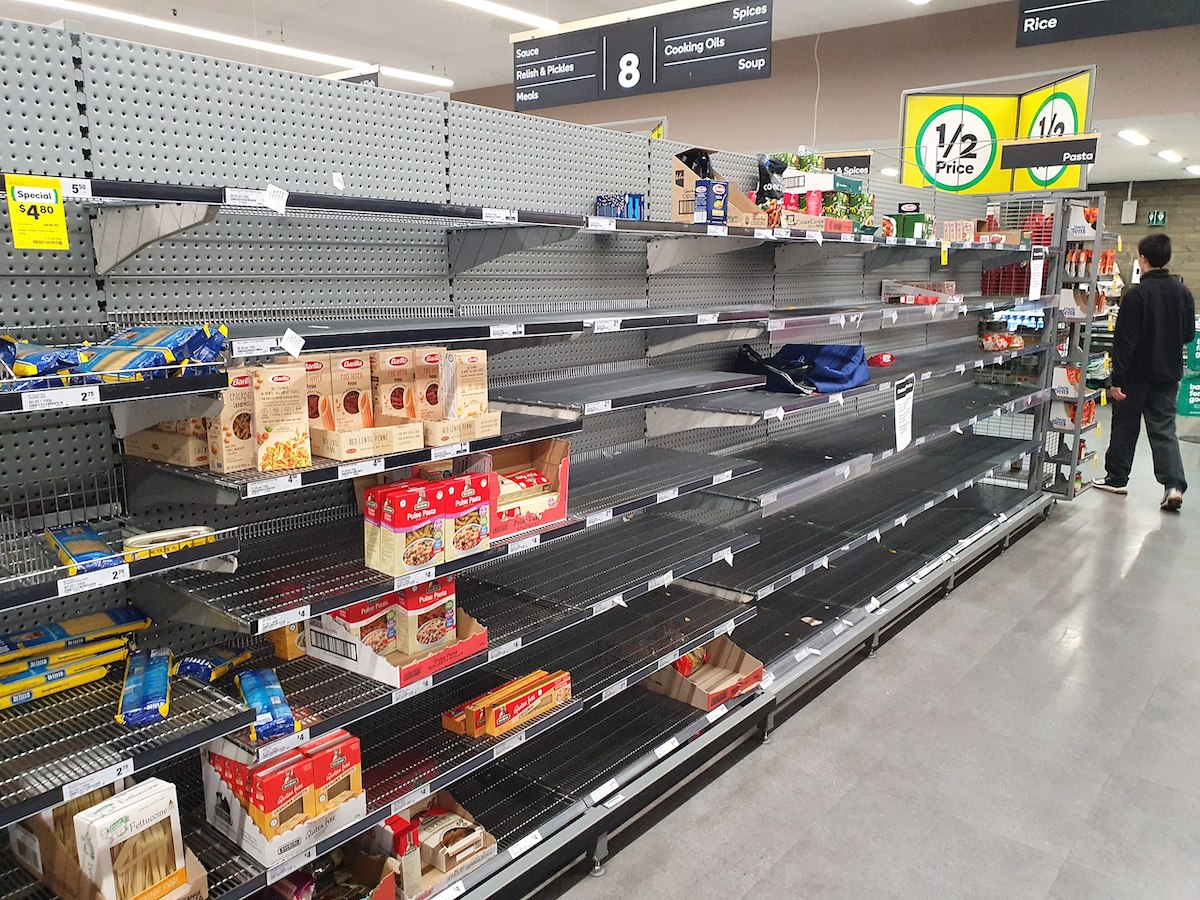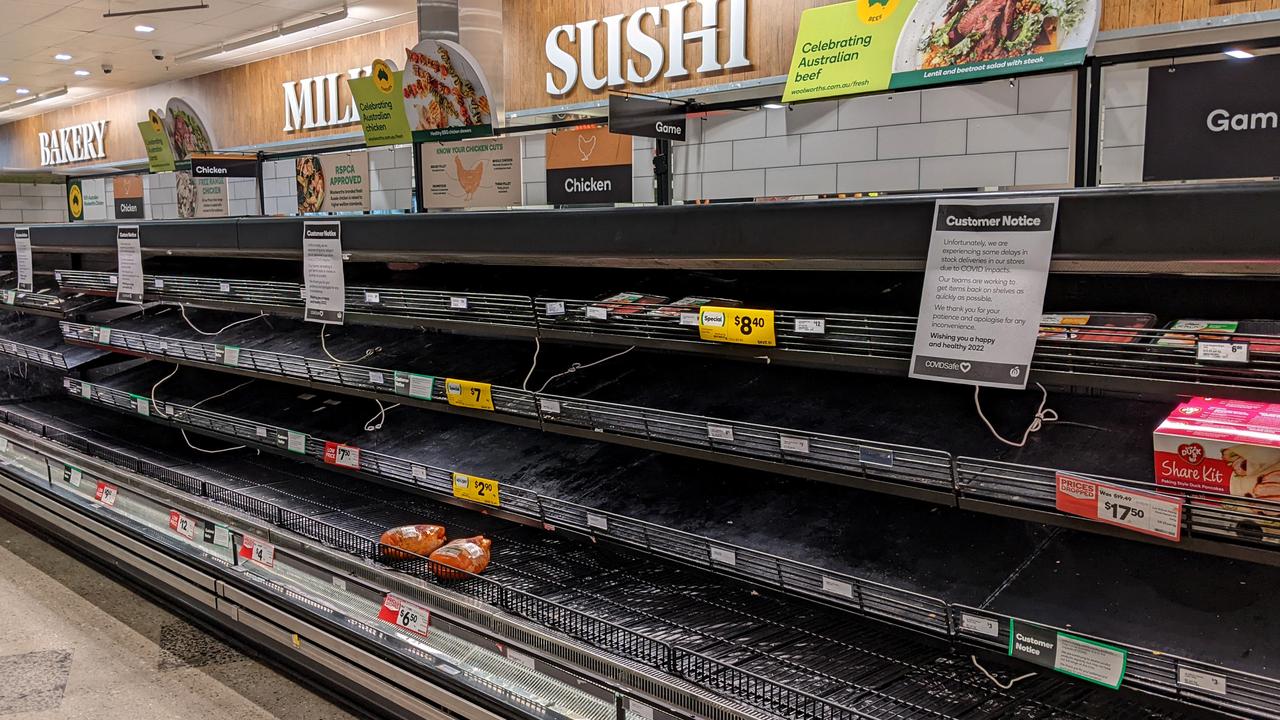
As Covid cases explode across the nation, attention is turning to our growing food supply crisis, amid fears the current problem is just the “tip of the iceberg”.
As Omicron tears through Australia, countless workers are being forced into isolation as a result of state-mandated Covid contact rules.
The situation is impacting all elements of the supply chain, including supermarket giants Coles and Woolies, which are reporting staff shortages at distribution centres of up to 35%.
It comes as shoppers grapple with bare supermarket shelves once again as a result of our supply chain woes, which is expected to escalate in the weeks ahead.
Independent Food Distributors Association of Australia (IFDA) CEO Richard Forbes said a national agreement on close contact isolation rules for workers was crucial, as at the moment, they varied between states and territories.
NSW and Queensland have just changed their rules to allow food workers to come out of isolation if they are without symptoms in order to keep operations running – but Mr Forbes said that arrangement would be meaningless unless it was a uniform rule.

“We welcome the changes by NSW and Queensland … but if there isn’t one consistent, national agreement across the country, and quickly, then food distribution warehouses will continue to be impacted by Covid which will ultimately impact those in the community that rely on us,” he said.
“A food transport system involves trucks crossing state borders daily, so the only solution is for Premiers and Chief Ministers to agree on one close contact isolation rule for all food workers, nationally.
“We have a situation where one of our members services 50 hospitals and nursing homes across states. He is facing the prospect of 175 of his 350 workers being in isolation this coming week.
“Surely, after all the community has been through over the past two years, states and territories can agree on this simple rule change for the good of the Australian community.”
Learn how to trade crypto, Forex, CFDs, and Binary options in India with trusted brokers
Mr Forbes said as cases surge, warehouses have been forced to close, alongside cafes and restaurants.
“This is just the tip of the iceberg, given we are told the peak of the pandemic is at the end of January,” he said.
Mr Forbes also demanded free, readily available rapid antigen tests (RAT tests) for critical workers.
“We also need national cabinet to ensure we have priority access to RAT tests given the essential services we offer within the community,” he said.
“Many warehouse owners have been struggling to access RAT tests for their workers and when they do, it has been costing them up to $5000 a week with no government support whatsoever, at a time when they are realizing huge financial losses”.

The push for uniform rules to allow workers to get back to work after testing negative has also been echoed by the Australian Retail Association (ARA) and Shop, Distributive and Allied Employees Association (SDA).
Subscribe for our newsletter
Get Forex brokers reviews, market insights, expert analytics and education material right into your inbox for free!
In a letter signed by ARA chief executive Paul Zahra and SDA national secretary Gerard Dwyer, the organisations called on Prime Minister Scott Morrison to provide free RAT tests to essential retail staff.
“We urge you to consult with the states and territories to provide free, immediate and appropriate priority access to rapid antigen tests to essential, frontline retail workers in stores and distribution centres and associated measures to help reduce pressure across the sector,” the letter reads, with Mr Zahra noting one in five members were now reporting up to 50 per cent of their staff were in isolation.
Prof Macau, who is also affiliated with the Australasian Supply Chain Institute (ASCI), wrote that shortages in 2020 and 2021 were triggered by a surge in demand due to panic buying, while today they are caused by nationwide “supply-side problems”, explaining that “supply chains are being crippled by the sheer number of transport, distribution and shop workers now sick or required to isolate.”
He said those without a three-week supply of essentials should stock up at their next opportunity – but urged Aussies to avoid stockpiling and making the problem even worse.